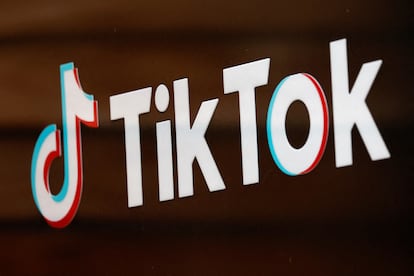Proposed TikTok ban for kids fails in Virginia’s Legislature
Democrats raised a range of concerns, including questions about enforceability and whether the government — rather than parents — should be responsible for limiting children’s access to social media

A GOP legislative effort to prevent Virginia children from using the popular video-sharing app TikTok — an idea backed by Republican Gov. Glenn Youngkin — died this week in the Democratic-controlled Legislature.
The bill, sponsored by Republican Del. Jay Leftwich of Chesapeake, was left in a House of Delegates committee after concerns were raised about how the ban would be enforced. Lawmakers also questioned whether singling out just one company was the right approach at a time of broad and rising concern from parents and lawmakers about the effect of social media on youth.
The bill’s lack of movement effectively killed the measure because of a procedural deadline Tuesday for most legislation to clear its chamber of origin. No comparable bill was introduced in the state Senate.
Youngkin framed his call for a ban on kids using the app, issued in a December speech, as a tool to help protect children’s mental health, part of a broader push by his administration on the issue.
Leftwich also said he brought the bill out of mental health and data privacy concerns for young people.
“The whole platform, especially for minors, is to get them engaged and kind of hooked into watching these things. And it leads them down different rabbit holes and they sit there for hours and hours watching these things,” he said in a committee hearing.
Leftwich’s bill went through a hefty revision from the way it was first introduced. The most recent iteration said TikTok Inc. and ByteDance, the Chinese company that owns the app, “shall not provide access to TikTok to any child within the Commonwealth.”
The bill would have allowed a child’s parent or legal custodian to bring a lawsuit against TikTok if a child was provided access. And if a plaintiff prevailed, they could recover damages of $75,000 for “each discrete violation,” defined as each separate instance a child accessed the platform, along with other damages, according to the text of the bill.
The bill received one hearing in a House committee that deals with technology bills. It advanced from there on a bipartisan 14-8 vote to a different committee where it was never heard.
Democrats in the hearing raised a range of concerns, including questions about enforceability and whether the government — rather than parents — should be responsible for limiting children’s access to social media.
Leftwich responded that policymakers have banned children from having access to “harmful substances” like alcohol and cannabis, and that he saw his proposal in the same light.
Del. Holly Seibold, a Democrat from Fairfax County, thanked Leftwich for brining the bill, saying she was a parent of teenagers and agreed children are becoming addicted to social media apps and their cellphones in general.
“But I will not be supporting this bill because I think it’s unfair to single out TikTok,” she said.
A spokesperson for TikTok, Jamal Brown, said in a statement that the company works hard to support teens’ well-being on the app, with tools including an automatic 60-minute time limit for users under 18, restrictions on direct messaging and parental controls.
“We’ve long said bans, like the one proposed in this legislation, are not only the wrong approach, but also raise significant First Amendment concerns,” Brown said.
Macaulay Porter, deputy communications director for Youngkin, said in a statement that the governor “remains committed to empowering parents in Virginia and protecting youth in the Commonwealth from social media’s harmful impacts.”
Youngkin previously banned the use of TikTok on state government devices and wireless networks through a 2022 executive order, citing national security concerns.
Other states and the federal government have taken similar steps to limit the use of the app on government devices, and Montana in 2023 passed a complete ban, which was later put on hold before it could take effect by a federal judge who called it unconstitutional.
Sign up for our weekly newsletter to get more English-language news coverage from EL PAÍS USA Edition
Tu suscripción se está usando en otro dispositivo
¿Quieres añadir otro usuario a tu suscripción?
Si continúas leyendo en este dispositivo, no se podrá leer en el otro.
FlechaTu suscripción se está usando en otro dispositivo y solo puedes acceder a EL PAÍS desde un dispositivo a la vez.
Si quieres compartir tu cuenta, cambia tu suscripción a la modalidad Premium, así podrás añadir otro usuario. Cada uno accederá con su propia cuenta de email, lo que os permitirá personalizar vuestra experiencia en EL PAÍS.
¿Tienes una suscripción de empresa? Accede aquí para contratar más cuentas.
En el caso de no saber quién está usando tu cuenta, te recomendamos cambiar tu contraseña aquí.
Si decides continuar compartiendo tu cuenta, este mensaje se mostrará en tu dispositivo y en el de la otra persona que está usando tu cuenta de forma indefinida, afectando a tu experiencia de lectura. Puedes consultar aquí los términos y condiciones de la suscripción digital.








































